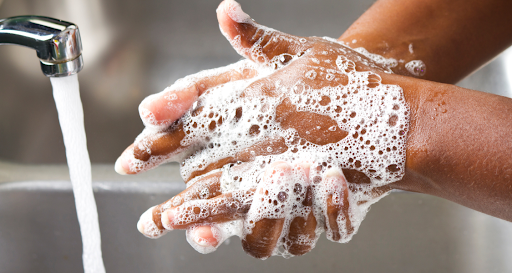Monitor High Cholesterol and Get Treated from Home
4 min read
By DocGenie , Published on - 02 October 2022Cholesterol, found in human cells, is a waxy, fat-like substance. Our bodies need some cholesterol to produce hormones, vitamin D, and substances that help us digest foods. Interestingly the human body makes all the necessary cholesterol. However, cholesterol is also present in foods like egg yolks, meat and cheese.
While cholesterol is necessary for your bodily functions, if your blood cholesterol is too high, it can combine with other substances present in the blood to form a build-up of plaque called atherosclerosis. Plaque is harmful as it sticks to the walls of your arteries and leads to coronary artery disease, in which the coronary arteries become narrow or at times can even get blocked, leading to a heart attack.
Cholesterol test
Cholesterol levels are generally checked through blood tests done at labs. The test is known as “lipid profile” and doctors do an analysis of the numbers to check different types of cholesterol like HDL, LDL, VLDL, total cholesterol and triglycerides, in order to make a treatment plan. HDL, LDL, and VLDL are basically lipoproteins, a subtype of cholesterol.
Based on these reports and other risk factors you may have, like your family history, doctors may suggest medicines or not. In the latter case if the report is only mildly abnormal they will suggest lifestyle changes and repeat testing of the cholesterol in a few months.
These 5 lifestyle changes could help you improve your cholesterol and boost the cholesterol-lowering power of medications -
1. Be careful about what you eat
A few dietary changes can go a long way in reducing cholesterol and improving your heart health. Cut down on saturated fats found mainly in red meat and full-fat dairy products. Lowering consumption of saturated fats can greatly trim down your low-density lipoprotein (LDL) cholesterol — the ‘bad’ cholesterol. Also, do away with trans-fats, often used in margarines, cookies, crackers and cakes, as it raises your overall cholesterol levels.
Include foods rich in omega-3 fatty acids including salmon, mackerel, herring, walnuts and flaxseeds, which do not affect LDL cholesterol. On the other hand they have great benefits like reducing high blood pressure. Two more important inclusions in your diet should be soluble fiber and whey protein. Soluble fiber found in oatmeal, kidney beans, Brussels sprouts, apples and pears can reduce absorption of cholesterol into your bloodstream.
2. Be physically active
Being physically active can greatly improve your cholesterol levels. Some regular physical activity is great in raising high-density lipoprotein (HDL) cholesterol, known as the ‘good’ cholesterol. A 30 minutes exercise routine everyday is a good way to address cholesterol issues.
Also consider:
- 30 minutes of brisk walk 5 days a week
- Cycling
- Playing a sport
- Using the stairs instead of taking the lift
- Parking at a distance from your office
- Taking walks during breaks at work or walking while you take a work call
- Activities like cooking or gardening
- Finding a fellow friend to join you in walks
3. Quit smoking
Smoking is very harmful for your overall health and has a considerable negative impact on your cholesterol levels. Think of quitting smoking to improve your HDL cholesterol levels and see benefits like:
- Blood pressure and heart rate recovery
- Blood circulation and lung function getting better
- Risk of heart disease reducing by half
4. Weight management
Extra weight always contributes to high cholesterol and it aggravates with every little addition. To manage weight you should start with eliminating sugary beverages from your life and sticking to plain drinking water. Snacks like air-popped popcorn or chips can be taken but you must be careful about tracking the calories.
5. Monitor your alcohol intake
Cut down your alcohol intake to moderate level as alcohol has higher levels of HDL cholesterol. Too much drinking can lead to serious health issues like high blood pressure, heart failure and strokes.
Women of all ages and men older than 65 years should take only one drink a day and men of 65 years of age and younger should take maximum two drinks a day. However, this data is for red wine only and done in western populations.
A caveat
Healthy lifestyle changes might not be enough to lower your cholesterol levels. If your doctor has prescribed medication to lower your cholesterol, take it as recommended while continuing your lifestyle changes. Lifestyle changes would help you in keeping the medication dosage low.
All of the assessment and advice as given above, can be done with a video consult from your home without visiting a hospital.
DocGenie is an online telemedicine platform that provides you with quality healthcare from the comfort of your own space. On DocGenie, you will find a select few, highly-qualified doctors, unlike other online platforms with thousands of doctors. So you can be assured of receiving excellent, honest, personalized care from the best doctors.
Author Details

Dr.Rachna Kucheria
MD (Community Medicine) AIIMS New Delhi
MD (Family Medicine) USC California
Obesity Medicine Certification The American Board of Obesity Medicine
30+ Years of experience


